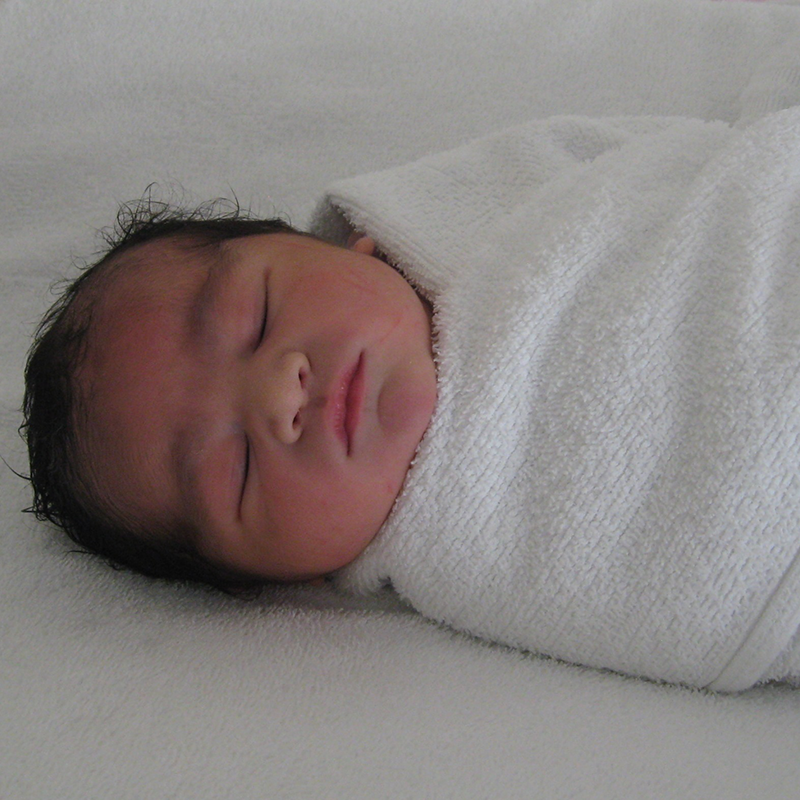Don't Miss
- Study Says Most Parents Don’t Use Car Seats In Ride Share Vehicles Like Uber
- This 12-Year-Old Boy Is A Sophomore Aerospace Engineering Major!
- Fire Safety Experts Warn Of Hand Sanitizer Danger After A Mom and Kids Escape House Fire
- Recall Alert: Peaches May Be The Cause Of Salmonella Outbreak, 68 People Ill
- Summer Vacation In The Days Of COVID: Tips To Stay Safe
- How To Safely Grocery Shop During The Coronavirus Pandemic
- Michigan Teen With Vape-Related Illness Undergoes Double Lung Transplant
- Teen Kicks Off Anti-Vaping Campaign From Hospital Bed
- Teenager Receives Life Sentence For Strangling Sister To Death Over A Wi-Fi Password
- Toddler Falls To Death From 11th Deck of Cruise Ship
Tips to Help Prevent Sudden Infant Death Syndrome

Keep Reading ↓ 

Sudden Infant Death Syndrome (SIDS) or crib death is when a baby 12 months or younger dies during sleep with no warning signs or a clear reason. Researchers have learned a great deal about SIDS in recent years but they still do not have a definitive answer to what actually causes it.
While SIDS can occur outside of cribs, it is also known as crib death because it happens most often during sleep and it is usually between the hours of 10 at night and 10 in the morning.
Although there is no certain way to prevent SIDS, there is a lot you can do lower your baby’s risk of infant mortality.
- Always place your baby to sleep on his back during naps and at night time.
- A baby’s risk of SIDS is much higher any time he sleeps on his side or stomach. Laying a baby on his side is considered safe by some however a baby placed on his side can roll over on his stomach.
- Laying baby on his side or stomach put your baby’s face in the mattress or sleeping area, which can smother him. When a baby sleeps tummy-down, he’s more likely to overheat, have pauses in breathing, and rebreathe the air that he has just exhaled, which lacks oxygen.
- Put your baby to sleep on a firm, flat mattress with no pillow or toys and nothing but a fitted sheet under him. A number of studies link soft sleeping surfaces, such as cot bumpers, quilts, comforters, sofas and water beds to a higher risk of SIDS.
- Do not let baby get too hot. If you notice any sweating, flushed cheeks or a heat rash baby could be getting too hot. Ensure that the room is at a comfortable temperature and dress baby lightly. Do not cover your baby’s face or head with hoods or hats.
- Do not use any sleep positioners, wedges or special mattresses claiming to reduce the risk of SIDS. There is no evidence supporting that they are safe and these may even cause suffocation if a baby slides down under a blanket.
- Do not let anyone smoke around your baby. Even smoking while you are pregnant is a major risk factor for SIDS!
- Do not let your baby sleep for extended periods in a stroller, swing, car seat or sling – especially for babies under four months of age as they may suffocate if their head rolls forward too much. When carrying your baby in a sling or infant carrier, make sure that his nose and mouth are clear and not pressed against the fabric or your body.
- You can also reduce your baby’s risk of dying from SIDS by talking to those who care for your baby, including any child care providers, family and friends or babysitters, about placing your baby to sleep on his back during naps and at night.
- There are also a number of baby monitors to help alert parents when their baby is suffocating.
Speak to your child’s pediatrician if you have any questions about safe sleep practices.








Larna Falzon
May 10, 2016 at 3:19 am
Michelle Horwell this is a good page to follow
Marialena Parisi
May 10, 2016 at 4:30 am
Emine Musli
Capers Jr Family
May 10, 2016 at 4:53 am
http://www.twincities.com/2016/05/02/st-paul-school-bus-stop-girl-5-found-bloodied/
Teresa Gemellaro
May 10, 2016 at 12:46 pm
Halve the risk. http://www.sidsandkids.org/news/breastfeed-baby-if-you-can-to-reduce-risk-of-sids/
Rose Bruggmann
May 10, 2016 at 1:48 pm
Ellie Aritonang, Yanti Johnson,Sulis Setyowati
Yanet Montero Mayeta
January 23, 2017 at 3:06 am
When my baby was born I only slept 16 hours the first week. I was ready to perform in ” The Walking Death”… because, seriously,…I looked like a zombie. I spent hours just watching her sleep and make sure she was OK. Then my husband bought me this device Angel Care, and it was a GREAT piece of mind! Is a breathing monitor that beeps when the baby stops breathing and even when the baby is lifted from the crib. While the baby is sleeping and breathing normally it sounds like a soft beep every 2 seconds that some people might find annoying but for me, it was music to my ears